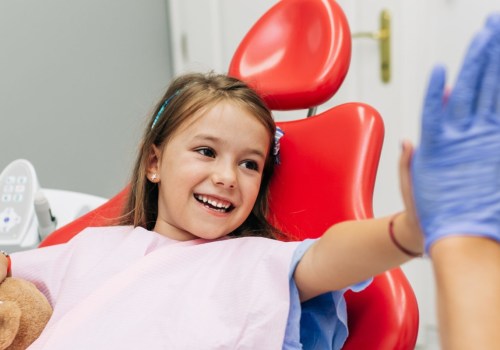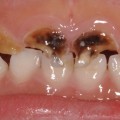What Are the Best Practices for Teaching Kids Good Dental Hygiene Habits?
Good dental hygiene is crucial for maintaining healthy teeth and gums. However, it can be challenging to instill good dental habits in children, especially when they are young. Teaching your child proper dental hygiene at a young age is essential for their long-term oral health. In this article, we will discuss the best practices for teaching kids good dental hygiene habits.
1. Start Early
It's never too early to start teaching your child about dental hygiene. Even before your child's teeth emerge, you can clean their gums with a soft, damp cloth to remove bacteria. Once their teeth start coming in, you should start brushing them twice a day with a small, soft-bristled toothbrush and a tiny amount of fluoride toothpaste.
2. Make It Fun
Children are more likely to enjoy something if it's fun. You can make dental hygiene fun for your child by singing a song while they brush their teeth or by buying them a toothbrush with their favorite character on it. You can also make a game out of brushing by setting a timer for two minutes and seeing if they can brush for the entire time.
3. Lead by Example
Children learn by watching and imitating their parents. If you want your child to have good dental hygiene habits, you need to lead by example. Brush your teeth twice a day, floss regularly, and make sure to schedule regular dental checkups for yourself. Your child will be more likely to follow your lead if they see you taking care of your own teeth.
4. Emphasize the Importance of Brushing and Flossing
It's essential to explain to your child why brushing and flossing are important. Let them know that brushing and flossing help remove food particles and bacteria from their teeth and gums, which can lead to cavities and gum disease if left untreated. You can also show them pictures of healthy and unhealthy teeth to help them understand the importance of good dental hygiene.
5. Use Positive Reinforcement
Positive reinforcement is a powerful tool in shaping behavior. You can use positive reinforcement to encourage your child to brush and floss regularly. For example, you can reward them with a small treat or sticker every time they brush their teeth without being reminded.
6. Limit Sugary Foods and Drinks
Sugary foods and drinks can contribute to tooth decay. Try to limit your child's intake of sugary foods and drinks, such as candy, soda, and juice. Encourage them to drink plenty of water instead.
7. Schedule Regular Dental Checkups
Regular dental checkups are essential for maintaining good oral health. You should schedule your child's first dental appointment around their first birthday or when their first tooth emerges. After that, they should see the dentist every six months for a checkup and cleaning.
8. Make It a Routine
Establishing a routine is essential for forming good habits. Make dental hygiene a part of your child's daily routine by brushing and flossing with them at the same time every day. This will help them develop good habits that they will carry with them into adulthood.
9. Teach Them How to Brush and Floss Properly
Teaching your child how to brush and floss properly is crucial for their oral health. Make sure they know to brush for at least two minutes, to brush all surfaces of their teeth, and to use a pea-sized amount of toothpaste. Show them how to floss properly by guiding the floss gently between their teeth and around the gum line.
10. Use Technology to Your Advantage
There are many apps and games available that can help make dental hygiene fun for kids. Some apps are designed to teach kids how to brush and floss properly, while others use games and rewards to encourage good dental habits. Consider using these tools to supplement your child's dental hygiene routine.
Conclusion
Teaching your child good dental hygiene habits is essential for their oral health. By starting early, making it fun, leading by example, emphasizing the importance of brushing and flossing, using positive reinforcement, limiting sugary foods and drinks, scheduling regular dental checkups, making it a routine, teaching them how to brush and floss properly, and using technology to your advantage, you can help your child develop good dental habits that will last a lifetime.
FAQs
Q: How often should my child brush their teeth?
A: Children should brush their teeth at least twice a day, once in the morning and once before bed.
Q: When should my child start using toothpaste?
A: Children can start using toothpaste as soon as their teeth start coming in. Use a small, pea-sized amount of toothpaste and make sure they spit it out after brushing.
Q: How often should my child see the dentist?
A: Children should see the dentist every six months for a checkup and cleaning.
Q: What should I do if my child is afraid of the dentist?
A: If your child is afraid of the dentist, try to make the experience as positive as possible. Take them to a pediatric dentist who specializes in treating children and use positive reinforcement to encourage good behavior.
Further Reading
- 10 Tips for Parents of Kids Who Hate to Brush and Floss
- Healthy Habits for Kids
- Brushing Up on Oral Health: How to Keep Your Child's Teeth Healthy
| Keyword | Search Volume | Competition |
|---|---|---|
| Kids dental hygiene | 880 | Low |
| Teaching dental hygiene to kids | 40 | Low |
| Dental hygiene for children | 260 | Low |
| How to teach kids good dental habits | 10 | Low |
| Prevent cavities in kids | 140 | Low |
By implementing the best practices for teaching good dental hygiene habits to your child, you can help ensure that they have a healthy smile for years to come. Remember to lead by example, make it fun, use positive reinforcement, limit sugary foods and drinks, schedule regular dental checkups, and teach them how to brush and floss properly. With a little effort and patience, you can help your child develop good dental habits that will last a lifetime.







